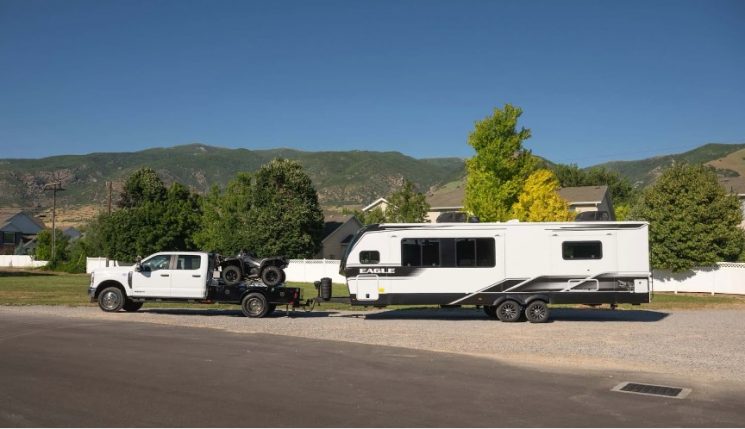
Camping in a Trailer or Recreational Vehicle (RV): An Extraordinary Experience
Camping in a trailer or recreational vehicle (RV) combines the freedom of the open road with the comforts of home. Whether you’re a beginner or an experienced camper, there are a few crucial aspects to know before embarking on this adventure. Here are the five essential things to keep in mind to make the most of your RV journey.
1. Choosing the Right Type of Trailer or RV
The first crucial step is to select the type of trailer or RV that best suits your needs and lifestyle. Options range widely, from small, lightweight caravans to luxurious Class A motorhomes. Consider these factors:
- Size and Capacity: How many people will be camping with you? Ensure your RV can comfortably accommodate everyone.
- Budget: RV prices vary greatly. Set your budget not only for purchasing or renting but also for maintenance and operational costs.
- Type of Camping Planned: Are you heading to fully equipped campgrounds or preferring off-grid camping? Some trailers and RVs are better suited for one or the other.
2. Learning to Drive and Maneuver Your RV
Driving an RV or towing a trailer is different from driving a regular car. Familiarize yourself with specific driving techniques, including:
- Maneuvering and Parking: Practice turning, reversing, and parking. Rest areas and campgrounds can be tight spaces.
- Driving in Varied Conditions: Be prepared to drive in diverse weather conditions and on different types of roads.
- Local Regulations: Learn the traffic laws for RVs in the regions you will travel through.
3. Planning Your Itinerary and Reservations in Advance
Proper planning is key to avoiding surprises and enjoying your trip to the fullest:
- Itineraries: Plan your route based on rest areas, campgrounds, and attractions you want to visit.
- Reservations: Some campgrounds fill up months in advance, especially during peak seasons. Book your spots early to avoid disappointment.
- Apps and Tools: Use RV-specific apps and websites to find campsites, dump stations, and other useful services.
4. Managing Energy and Water
Resource management is essential for a comfortable stay:
- Batteries and Solar Panels: Ensure your batteries are in good condition, and consider installing solar panels for a renewable energy source.
- Water Tanks: Learn to manage your fresh and waste water tanks. Know where to find filling and dumping stations.
- Conserving Resources: Be mindful of your water and energy consumption to extend your autonomy.
5. Maintenance and Safety
A well-maintained RV ensures safety and peace of mind:
- Regular Maintenance: Perform routine checks on your RV, including tires, brakes, and electrical and plumbing systems.
- Emergency Kit: Always carry a kit with basic tools, spare parts, and a first-aid kit.
- Fire Safety: Equip your RV with smoke detectors, fire extinguishers, and carbon monoxide detectors.
Conclusion
Camping in a trailer or RV can be a rewarding and unforgettable adventure if you are well-prepared. By selecting the right equipment, learning to maneuver it, carefully planning your routes, managing your resources, and maintaining your vehicle regularly, you can ensure a pleasant and stress-free camping experience. Get ready, hit the road, and embrace the freedom that RV camping uniquely offers!
